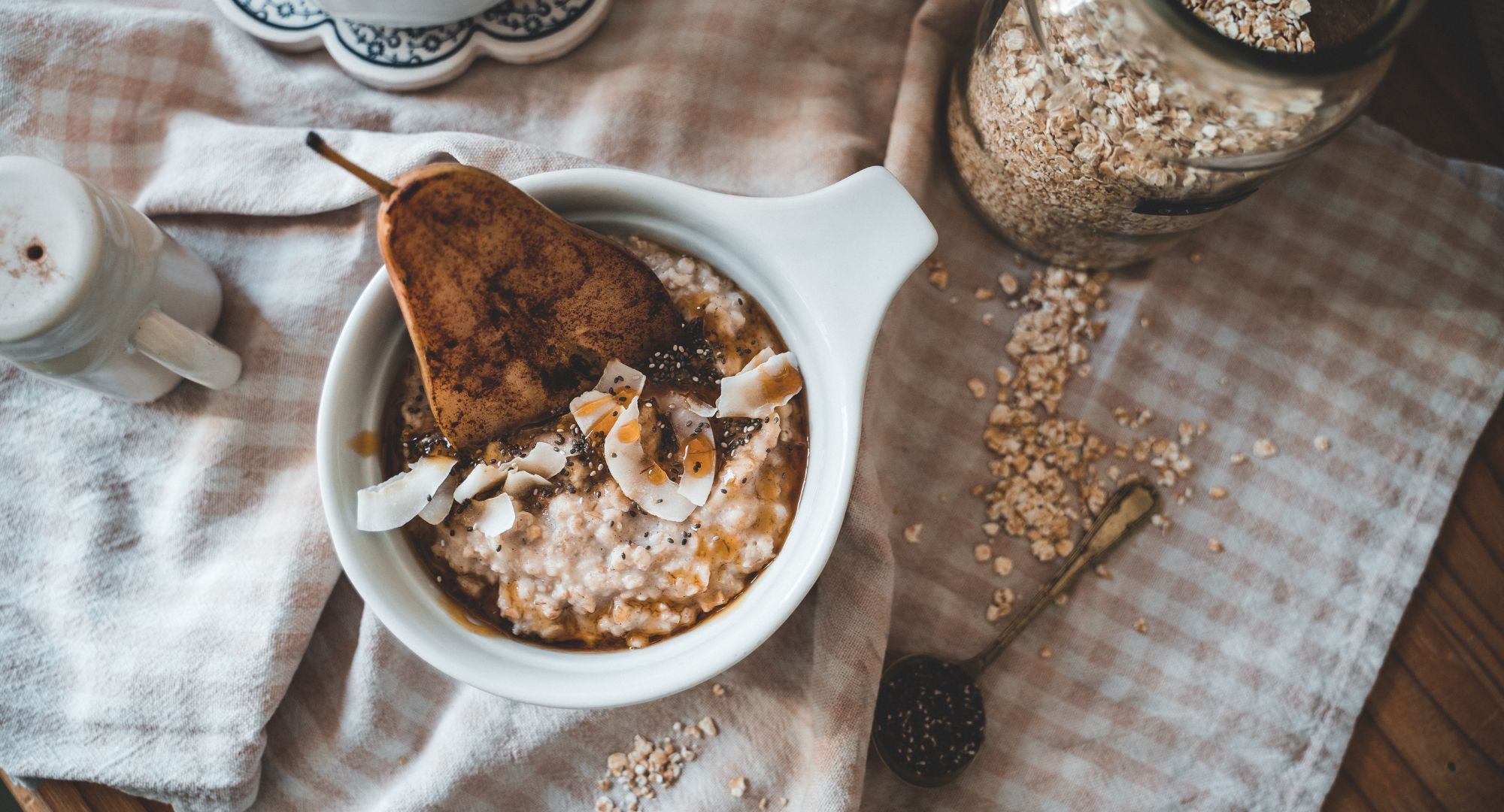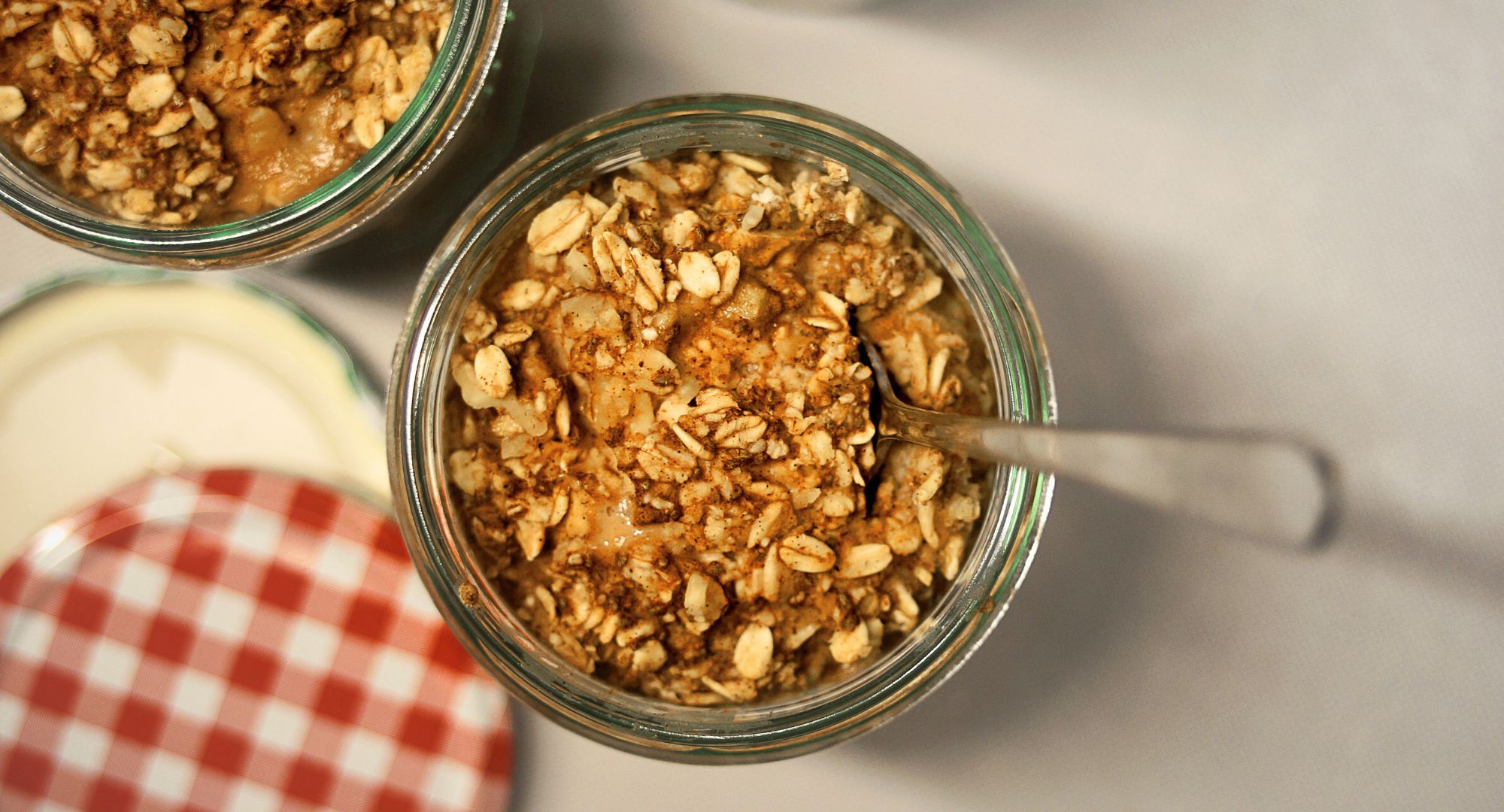
Ever seen those commercials where people are flying around on mattresses or walking around like zombies because of “junk sleep”? Well, junk sleep is real, and it’s affecting millions of Americans each year.
According to the National Institutes of Health, approximately 70 million Americans suffer from chronic or ongoing sleep disorders. That’s a pretty grim number, considering America is work-obsessed; the last thing we need is to be sleep-deprived, too.
But there is good news. There are a few things you can do to improve your sleep, and one of them is to eat oatmeal. That’s right, oatmeal.

Is oatmeal good for you?
Oatmeal is a great source of fiber, protein, vitamins, minerals, and other bioactive compounds, such as beta-glucan (soluble fibers), avenanthramides (phenolic alkaloids), and saponins (triterpene glycosides).
But not all oatmeal is created equal. Store-bought oatmeal packets often contain high amounts of added sugar, artificial flavors, and other unhealthy ingredients that can disrupt your sleep and make it difficult to get a good night’s rest.
Opt for plain, unsweetened oatmeal and add toppings like fruits, nuts, or a drizzle of honey for natural sweetness. You can also add cinnamon, nutmeg, or cocoa powder for an extra kick of flavor without any unwanted additives.

How does oatmeal improve sleep?
You might think of oatmeal as a breakfast food, but this easy-to-make meal is good for just about any time of day, especially if you want to improve your sleep. That’s because oatmeal contains melatonin and magnesium, both of which are sleep-boosting nutrients.
According to the USDA, one cup of cooked oats has 63.2 mg of magnesium.
Oatmeal also contains complex carbohydrates. Complex carbohydrates help to increase the amino acid tryptophan in your body. Tryptophan is converted to serotonin, a feel-good hormone that improves mood and relaxation.
Other benefits of oatmeal include:
- Lowering cholesterol levels
- Improving digestive health
- Providing sustained energy throughout the day
- Reducing risk factors associated with cardiovascular disease and type 2 diabetes
- Promoting weight management through its high fiber content, which aids in feeling satiated

The ultimate bedtime oatmeal recipe
Now that you know oatmeal is a quick way to hack better sleep, here’s the ultimate bedtime oatmeal recipe to try from Healthy Fitness Meals.
Peanut butter banana overnight oats
Ingredients:
- 2 spotty mashed bananas
- 3 tablespoons creamy peanut butter
- 1/4 cup pure maple syrup
- 2 teaspoons vanilla extract
- 2 1/2 cups unsweetened almond milk
- 2 cups old-fashioned oats
- 2 tablespoons chia seeds
Toppings:
- Sliced banana
- Peanut butter
- Unsalted chopped peanuts
Instructions:
- Mix the mashed banana, peanut butter, maple syrup, vanilla extract, and almond milk in a large bowl.
- Add the oats and chia seeds and stir until everything is combined.
- Divide the mixture into small mason jars and put them in the fridge.
- When you’re ready for a midnight snack, grab a jar and top it with sliced banana, chopped peanuts, and a drizzle of peanut butter (if you like it).
- Enjoy!
Pro tip: If you’re not a fan of bananas, swap them out for blueberries or strawberries. Both of these berries are high in melatonin and antioxidants.

The bottom line
You don’t need to take supplements (like magnesium for sleep) when there are other, more natural ways to help you hit the hay.
Here are a few tips for how to get better sleep:
- Create a sleep schedule, and stick to it.
- Avoid blue light and electronic devices at least an hour before bedtime to allow your brain time to unwind.
- Get regular exercise, but avoid exercising too close to bedtime.
- Refrain from consuming caffeine or alcohol before bed.
If you’ve done all you can and nothing seems to help, then it might be time to contact a sleep specialist or your GP for further advice.
Editors' Recommendations
- Do you need intra workout carbs?
- 5 delicious carnivore diet snacks you can take on-the-go
- These low carb pasta options are just as delicious
- The 12 healthiest fruits you can eat right now
- What foods are high in iron? These staples will help you live a healthier life



